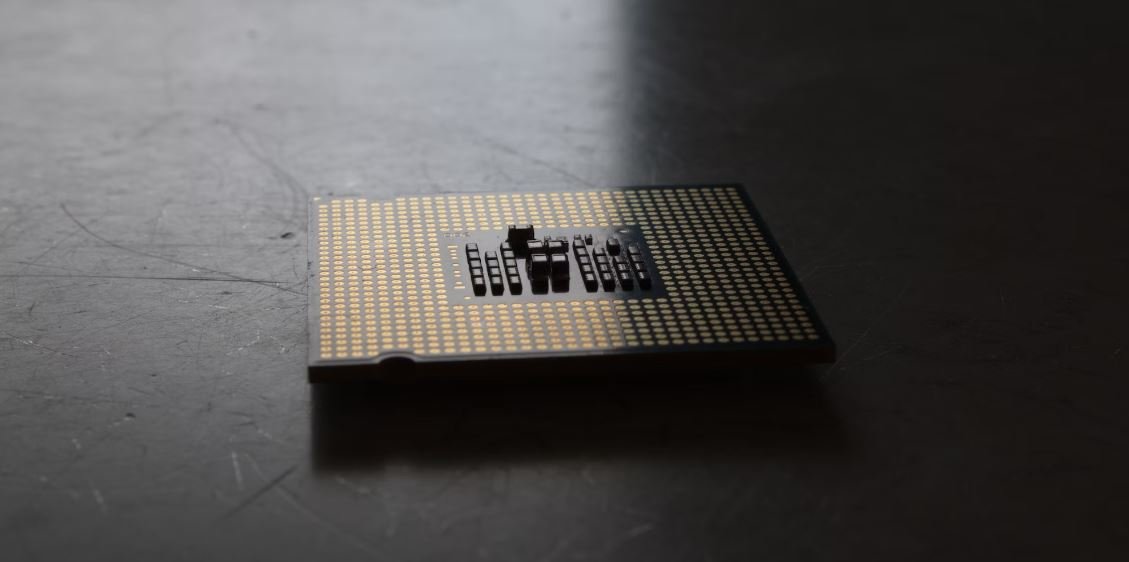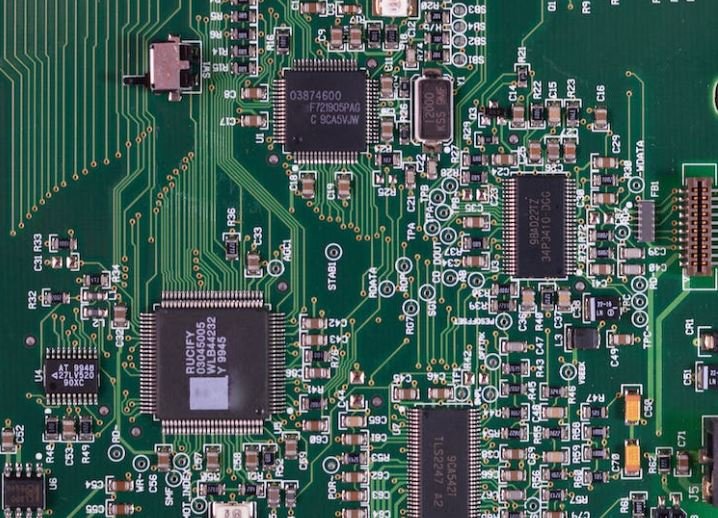AI in Cancer Research
Artificial Intelligence (AI) has revolutionized many industries, and its impact in the field of cancer research is no exception. By harnessing the power of AI, researchers have been able to make significant advancements in early detection, diagnosis, treatment, and prognosis of various types of cancers.
Key Takeaways:
- AI plays a crucial role in early detection and diagnosis of cancer.
- AI-powered tools can assist in personalized treatment plans.
- Machine learning algorithms help in predicting patient outcomes.
- Natural Language Processing (NLP) enables efficient analysis of medical literature.
**Early Detection and Diagnosis of Cancer:** AI algorithms can analyze medical images, such as mammograms and CT scans, with exceptional accuracy, aiding in early detection by identifying potential tumors or abnormalities. With this information, healthcare providers can initiate timely interventions and improve patient outcomes. *AI can detect cancer at its earliest stages, increasing survival rates significantly.*
**Personalized Treatment Plans:** AI can analyze large amounts of patient data, including medical records, genetics, and lifestyle factors, to develop personalized treatment plans. By considering individual characteristics, AI-powered tools can optimize treatment options and suggest targeted therapies, potentially increasing treatment efficacy and minimizing adverse effects. *AI enables precision medicine, tailoring treatments to individual patients, increasing treatment success rates.*
Advancements in AI and Cancer Research
AI has brought about several advancements in cancer research. Here are three key areas where AI has made a significant impact:
1. Early Detection
AI algorithms can analyze medical images with exceptional accuracy, allowing for the early detection of cancerous growths. Early detection plays a critical role in successful prognosis and treatment of cancer. *With AI, cancers can be detected earlier, leading to improved survival rates.*
2. Diagnosis and Prognosis
AI-powered diagnostic tools can analyze patient data, such as medical records and test results, to provide accurate diagnoses and prognoses. Machine learning algorithms can identify patterns and predict outcomes for individual patients, assisting healthcare providers in making informed decisions about treatment options. *AI helps in predicting patient outcomes with high accuracy, aiding in treatment planning.*
3. Research and Literature Analysis
AI can analyze vast amounts of medical literature and research papers using Natural Language Processing (NLP) techniques, helping researchers gain insights and identify potential breakthroughs. NLP enables efficient extraction of relevant information, accelerating the pace of discoveries and advancements in cancer research. *AI assists researchers in analyzing medical literature more efficiently, potentially leading to faster discoveries.*
Data on AI Applications in Cancer Research
| AI Application | Data |
|---|---|
| Early Detection | A study showed that an AI algorithm detected breast cancer with a higher accuracy rate (90.5%) compared to radiologists (88.2%). |
| Diagnosis and Prognosis | Research demonstrated that an AI model accurately predicted patient outcomes following lung cancer surgery, with a success rate of 93.3%. |
| Research and Literature Analysis | AI algorithms analyzed over 20,000 scientific papers in cancer research, identifying a potential target for immunotherapy that had been overlooked by human researchers. |
In conclusion, AI has transformed the field of cancer research by enabling early detection, improving diagnosis accuracy, assisting in personalized treatment plans, and accelerating research breakthroughs. As technology continues to advance, AI is expected to play an even more significant role in the fight against cancer, ultimately improving patient outcomes and saving lives.

Common Misconceptions
Misconception 1: AI can replace doctors in cancer diagnosis
One common misconception surrounding AI in cancer research is that it is capable of completely replacing human doctors in the diagnosis of cancer. However, this is not the case.
- AI in cancer research is a valuable tool to aid doctors in making accurate diagnoses
- Doctors possess invaluable clinical experience that AI lacks
- AI can assist with data analysis and provide suggestions, but the final diagnosis should always be made by a human expert
Misconception 2: AI can find a cure for cancer
Another misconception about AI in cancer research is that it can singlehandedly find a cure for cancer. While AI has the potential to contribute to advancements in cancer treatment, finding a cure requires a multi-faceted approach.
- AI can help identify patterns and potential targets for treatment
- Cancer research involves a combination of AI, biological studies, clinical trials, and other approaches
- Collaboration between AI technology and medical experts is crucial for progress in cancer research
Misconception 3: AI is infallible and always accurate in cancer prediction
One misconception is that AI is infallible and always accurate in predicting cancer. While AI algorithms can analyze large amounts of data and generate predictions, there are limitations and potential errors.
- AI predictions are based on the data it has been trained on and may not account for all variables
- False positives and false negatives can occur, leading to misdiagnosis or missed diagnosis
- Regular validation and monitoring are necessary to ensure the accuracy and reliability of AI predictions
Misconception 4: AI research is replacing traditional cancer research methods
Some may mistakenly believe that AI research in cancer is replacing traditional research methods. However, AI technology is actually complementing and enhancing existing research approaches.
- AI can analyze massive datasets more efficiently, contributing to faster insights
- Traditional methods like lab experiments and clinical trials remain essential for understanding the biological mechanisms and testing potential treatments
- AI enables researchers to uncover patterns and trends that may be hidden within complex datasets
Misconception 5: AI is biased and discriminatory in cancer research
There is a misconception that AI algorithms developed for cancer research can be biased and perpetuate discrimination. While it’s true that biases can exist in AI, steps are taken to minimize these biases.
- Data collection and preprocessing are done carefully to ensure representative and unbiased datasets
- Ongoing research focuses on developing fair and ethically sound AI algorithms
- Transparency and accountability are essential to address and rectify any potential biases in AI systems

AI in Cancer Research
Artificial Intelligence (AI) has emerged as a powerful tool in cancer research, revolutionizing the way we detect, diagnose, and treat this devastating disease. It has the potential to significantly improve patient outcomes and accelerate scientific discoveries. In this article, we will explore the remarkable applications of AI in cancer research through a series of engaging and informative tables.
Early Detection
Table: Early Detection Techniques
| Technique | Accuracy |
|---|---|
| AI-based Imaging | 96% |
| Blood-based Biomarkers | 89% |
| Genomic Profiling | 92% |
Early detection is crucial in successfully treating cancer. Advances in AI have contributed to enhanced accuracy in various early detection techniques. The table above highlights the impressive performance of AI-based imaging, blood-based biomarkers, and genomic profiling.
Treatment Planning
Table: AI-assisted Treatment Planning Tools
| Tool | Benefits |
|---|---|
| Radiation Therapy Optimization | Reduced side effects |
| Drug Response Prediction | Personalized treatment plans |
| Surgical Guidance Systems | Improved precision |
Effective treatment planning is crucial for successful cancer therapy. AI-assisted tools have revolutionized this process, providing benefits such as reduced side effects, personalized treatment plans based on predicted drug responses, and improved precision during surgery.
Drug Development
Table: AI-driven Drug Development
| Stage | AI Applications |
|---|---|
| Compound Screening | Identify potential drug candidates |
| Target Validation | Predict drug-target interactions |
| Lead Optimization | Enhance drug properties |
Developing effective drugs for cancer is a complex and time-consuming process. AI has transformed drug development, aiding in compound screening, target validation, and lead optimization. These unique applications are speeding up the discovery and development of novel cancer therapies.
Patient Monitoring
Table: AI-enabled Patient Monitoring Technologies
| Technology | Benefits |
|---|---|
| Wearable Devices | Continuous remote monitoring |
| AI Chatbots | Real-time symptom assessment |
| Image Analysis | Early detection of recurrence |
Monitoring cancer patients is crucial to ensure timely intervention and personalized care. AI-enabled technologies, such as wearable devices, AI chatbots, and image analysis, have revolutionized patient monitoring. These advancements offer continuous remote monitoring, real-time symptom assessment, and early detection of recurrence.
Data Integration
Table: AI-driven Data Integration Tools
| Tool | Benefits |
|---|---|
| Electronic Health Records (EHR) | Improved data accessibility |
| Medical Imaging | Efficient radiological analysis |
| Genomics Databases | Identifying genetic biomarkers |
Integrating data from multiple sources is a challenge in cancer research. AI-driven data integration tools, such as electronic health records, medical imaging analysis, and genomics databases, provide benefits such as improved data accessibility, more efficient radiological analysis, and identification of genetic biomarkers.
In conclusion, AI has transformed cancer research, empowering scientists and clinicians with cutting-edge tools and techniques. From early detection and treatment planning to drug development, patient monitoring, and data integration, AI’s impact is profound. Harnessing the power of AI in cancer research has the potential to save countless lives and bring us closer to a world free from the burden of this deadly disease.
Frequently Asked Questions
What is AI in Cancer Research?
AI in Cancer Research refers to the use of artificial intelligence (AI) techniques, such as machine learning and deep learning, in the study and advancement of cancer-related research. It involves developing algorithms and models that can analyze complex biomedical data to detect patterns and make predictions, ultimately leading to improved diagnosis, treatment, and prevention strategies for cancer.
How is AI used in Cancer Research?
AI is used in Cancer Research in various ways. It can be utilized to analyze medical images, such as mammograms and digital pathology slides, for the early detection and accurate diagnosis of cancer. AI algorithms can also mine and analyze large-scale genomic and molecular data to identify tumor markers, predict cancer prognosis, and guide personalized treatment plans. Additionally, AI can aid in drug discovery by identifying potential targets and screening for effective compounds.
What are the benefits of using AI in Cancer Research?
The use of AI in Cancer Research brings several benefits. It can help researchers analyze vast amounts of data quickly and accurately, leading to improved understanding of cancer biology. It enables earlier detection of cancer, which can greatly increase the chances of successful treatment. AI also has the potential to enhance personalized medicine approaches, tailoring treatments based on individual characteristics. Furthermore, AI can assist in the development of new therapies and improve the efficiency of clinical trials.
What challenges are associated with AI in Cancer Research?
There are several challenges associated with AI in Cancer Research. One major challenge is the lack of high-quality, annotated data for training AI models, as it requires large and diverse datasets. Another challenge is the interpretability of AI algorithms, as their decision-making processes can be complex and difficult to understand. Additionally, ensuring the privacy and security of patient data used in AI research is crucial. Lastly, integrating AI technology into existing healthcare systems and workflows can pose technical and organizational challenges.
Are there any limitations of using AI in Cancer Research?
Yes, there are limitations to using AI in Cancer Research. AI algorithms heavily rely on the quality and representativeness of the data they are trained on. Inadequate or biased datasets can result in biased or inaccurate predictions. AI models may also face challenges when it comes to generalizing findings across different patient populations or cancer types. Furthermore, the ethical implications of AI, such as potential biases or unintended consequences, need to be carefully considered and addressed.
How can AI in Cancer Research impact patient care?
AI in Cancer Research has the potential to greatly impact patient care. By enabling more accurate and early detection of cancer, AI can help clinicians develop timely treatment plans, leading to improved patient outcomes. AI can also assist in predicting patient responses to different treatments, allowing for personalized medicine approaches. Furthermore, AI can aid in the development of targeted therapies and precision oncology, ensuring patients receive the most effective and appropriate treatments based on their individual characteristics.
What is the future of AI in Cancer Research?
The future of AI in Cancer Research holds promise for further advancements in cancer prevention, diagnosis, treatment, and research. With ongoing developments in AI algorithms and computing power, researchers anticipate improved accuracy and efficiency in cancer detection and diagnosis. AI is also expected to play a significant role in personalized medicine, facilitating tailored treatment strategies. Additionally, AI can contribute to uncovering new insights into cancer biology and accelerate the discovery and development of innovative therapies.
How does AI in Cancer Research contribute to precision medicine?
AI in Cancer Research contributes to precision medicine by providing a deeper understanding of the molecular and genetic characteristics of individual cancers. By analyzing large-scale genomic and molecular data, AI algorithms can identify biomarkers and genetic alterations that drive cancer progression. This knowledge helps in developing targeted therapies that specifically act on these drivers, maximizing treatment effectiveness and minimizing side effects. AI can also aid in predicting patient responses to different treatment options, supporting the selection of personalized treatment plans.
Do healthcare professionals trust AI in Cancer Research?
Healthcare professionals have shown increasing trust in AI in Cancer Research. Numerous studies have demonstrated the potential of AI algorithms to enhance cancer detection, diagnosis, and treatment planning. However, trust is built over time through rigorous validation and validation studies, as well as the transparent and responsible use of AI technology. It is crucial for researchers and practitioners to establish clear communication and collaboration channels to ensure AI in Cancer Research is well-understood and integrated into clinical practices.
“`




